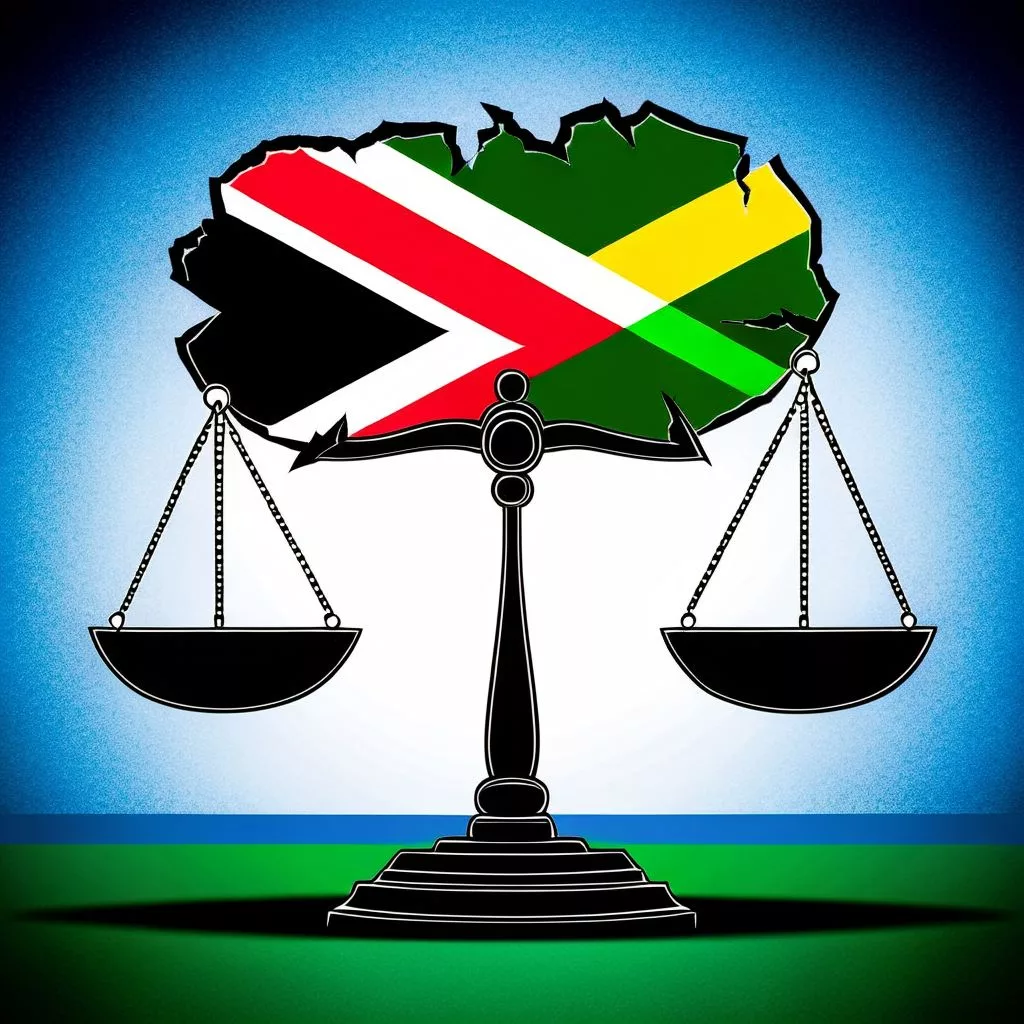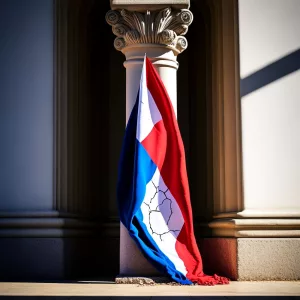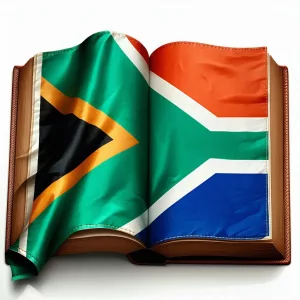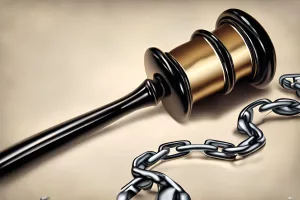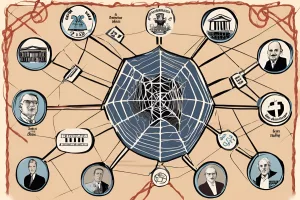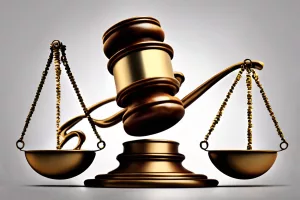Julius Malema, a fiery South African political leader, was found guilty of hate speech for words that sparked violence and hatred at a 2022 rally. The court’s ruling shows how South Africa carefully balances freedom of speech with protecting people’s dignity, holding leaders accountable when their words harm others. This case connects to the country’s deep history of struggle, showing how speech can both inspire change and cause pain. As debates heat up, South Africa continues to wrestle with what it means to speak freely while keeping peace and respect alive.
Paul Mashatile’s expensive Constantia mansion has sparked big questions in South Africa. Many wonder how he can afford such a luxury home on his official salary, especially since the monthly costs far exceed his declared income. The house, along with other pricey properties linked to him and his family, has led to accusations of corruption and hidden wealth. This controversy shines a light on deeper worries about fairness, trust, and power in the country. For many, the mansion is not just a house but a symbol of the ongoing fight for honesty and equality in South Africa.
Gayton McKenzie is a former armed robber who turned his life around to become a South African politician and Minister of Sport, Arts and Culture. He openly talks about his criminal past, using it to expose corruption and challenge rivals like Julius Malema. After serving time in prison, where he exposed corruption, McKenzie reinvented himself by starting a political party and entering government. His bold honesty and sharp words make him a unique and powerful voice in South African politics.
The Economic Freedom Fighters (EFF) celebrated their 12th anniversary in Khayelitsha, turning the township into a lively stage of hope and resistance. The event, moved from floodhit Mthatha, showed the party’s care for people and quick thinking. Thousands gathered under bright red banners for speeches, music, and poetry, celebrating struggle and dreaming of a better future. By choosing Khayelitsha, the EFF challenges old powers and shows it’s ready to fight for change in South Africa’s heart. This celebration is more than a party—it’s a powerful call for unity and justice.
A viral photo caused a big stir in South African politics by wrongly linking Patriotic Alliance leaders Gayton McKenzie and Kenny Kunene to a murder suspect, Katiso Molefe. Both McKenzie and Kunene quickly denied knowing Molefe and explained the picture was misleading. This scandal shows how fast misinformation spreads on social media, damaging reputations and fueling political fights. It also highlights the tricky mix of politics, celebrity, and rumors in today’s digital world.
The Patriotic Alliance is in the spotlight after its deputy president, Kenny Kunene, got linked to the murder investigation of DJ Sumbody, a famous Amapiano music star. Kunene was put on leave while an independent probe looks into his role, showing the party’s effort to stay clean. Police also arrested four men, including a businessman tied to the crime world, in a dramatic raid connected to the case. This scandal has shaken South African politics and sparked tough questions about crime, leadership, and justice.
Afrikaner white South Africans are leaving their country because they worry about violence, money troubles, and feeling left out. Their move to the United States, under a special policy, has caused lots of talk and argument on both sides. A funny puppet named Chester Missing uses sharp jokes to poke fun at the situation, making people laugh but also think deeply about South Africa’s past and present. The government says these fears are exaggerated and that all citizens face challenges, not just Afrikaners. This drama is more than just migration—it’s a big show about identity, history, and what it means to find a new home.
Liam Chad Jacobs is a young South African politician who shines as a fresh and fearless voice in the fight against government waste and corruption. Starting from student activism, he quickly rose to Parliament, where he boldly questions how public money is spent and pushes for honesty. Using social media like TikTok, he makes politics easy to understand and invites everyone to watch government work in action. Jacobs’ energy and skill inspire hope that South Africa’s future leaders can bring real change and fairness to the country.
The JP Smith controversy in Cape Town began when police searched his office, sparking a heated debate about fairness and politics. Smith says he cooperated but the police kept his devices for too long and used misleading reasons to get their search warrant. Many believe the operation was more about hurting his reputation than justice. This case shines a bright light on how power, law, and public opinion clash in South Africa’s fight for true democracy. It reminds everyone that fairness and trust are vital to keep the country’s laws strong and fair.
Patrice Motsepe is a powerful South African businessman whose name is quietly gaining attention as a possible leader for the ANC in 2027. Coming from humble township roots, he built a huge mining empire and is known for his honesty and smart leadership. Many see him as a fresh, hopeful face who could help renew the party and bring real change to South Africa’s economy. While some worry about mixing big money with politics, Motsepe’s rise sparks strong talk about what the ANC needs to succeed in a tough future. His story is already shaking up the party and inspiring many who want a new direction.
The Democratic Alliance (DA) is fighting hard against corruption in South Africa by accusing Minister Thembi Simelane of approving over R700,000 in fake payments linked to the Kusile Power Plant scandal. They want the police to investigate fully and bring justice. This case has stirred strong feelings because it reminds many South Africans of past scandals and broken promises. With public eyes watching closely, the DA hopes to push for honest leadership and clean government. The battle shows the nation’s deep need for truth and fairness at the highest levels.
President Cyril Ramaphosa’s leadership in South Africa is a tricky puzzle. He struggles to control his party, the African National Congress (ANC), which is filled with different groups and opinions. This confusion spills over into his government, making it hard to create clear policies, especially on energy. As he tries to balance many voices in a coalition government, he faces huge challenges like high unemployment and economic inequality. Ramaphosa’s cautious style of leadership sometimes makes it seem like he’s unsure, which adds to the chaos around him.
Mbuyiseni Ndlozi is starting a fresh chapter in his life after leaving the Economic Freedom Fighters (EFF). He is shifting from politics to teaching and writing, hoping to inspire young minds in South Africa. Known for his passionate speeches, Ndlozi wants to fill a gap in the country’s discussions and help shape future leaders. His journey shows that there are many ways to contribute to society, not just through politics. Ndlozi’s story reminds us that pursuing knowledge can lead to real change in the world.
In South Africa’s lively politics, words hold great power, influencing how people see their leaders. A recent clash between Naledi Pandor and Julius Malema showed just how sharp this power can be. Malema accused Pandor of a serious mistake but didn’t apologize publicly, leaving her frustrated and questioning his honesty. This incident reveals how essential truth and accountability are in politics, reminding us that leaders must be brave enough to admit their errors. As the media spreads these stories fast, the need for clear and honest communication becomes even more important for trust in democracy.
The Economic Freedom Fighters (EFF) are raising serious questions about Agriculture Minister John Steenhuisen’s hiring choices, claiming he brought in people who aren’t qualified for their jobs. This situation has sparked a larger conversation about honesty and responsibility in South African politics. The EFF is pushing for a closer look at Steenhuisen’s actions, especially after a controversial appointment of a divisive figure as his chief of staff. As this drama unfolds, it highlights the ongoing struggle for ethical leadership in government and the importance of holding leaders accountable for their decisions.
In the colorful world of South African politics, Advocate Busisiwe Mkhwebane’s recent social media comments have sparked a lively debate about the duties of public officials. These officials, as guided by the Constitution, must respect dignity, equality, and unity, balancing their personal opinions with their public responsibilities. Mkhwebane’s remarks, seen by many as unfair criticism of Parliament’s legal advisors, highlight the importance of maintaining trust and integrity in democracy. The incident reminds everyone that while social media can amplify voices, it also comes with the responsibility to uplift and protect democratic values. As South Africa continues its journey toward inclusivity, the role of Parliament in upholding these ideals remains crucial.

